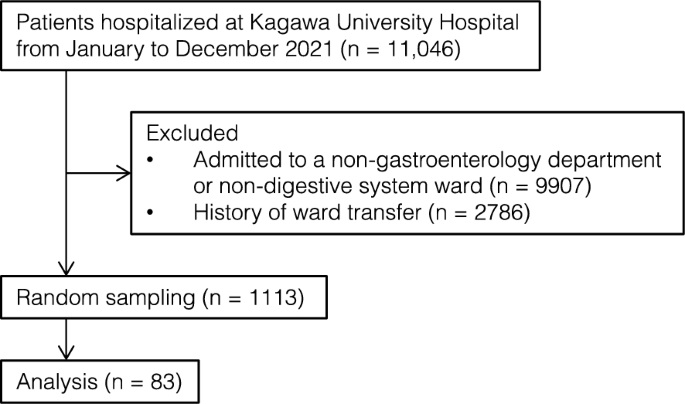How Long Does It Take To Digest Food?
:max_bytes(150000):strip_icc()/Health-GettyImages-1410057082-4a3736221c43404b92577020e53450c1.jpg)
How long does it take for your stomach to empty after eating? The digestive process generally takes a few days. Exactly how long it takes to digest food depends on a few factors, such as what you eat and underlying health conditions.
Eating high-fiber foods, exercising, getting plenty of rest, and reducing stress help improve digestion. A healthcare provider may prescribe medicines that help with digestion if you have a digestive disorder. Read on to learn how long it takes to digest food and how to improve digestion.
VioletaStoimenova / Getty Images
The time it takes to digest food, or from when you put it in your mouth to when you excrete it, depends on many factors. It “takes anywhere from two to five days for people to digest food,” Rabia De Latour, MD, an assistant professor of medicine at NYU Langone Health, told Health.
Many factors affect how long this process takes. High-fiber foods, for example, can speed up digestion. Simple, non-processed foods are typically easy to digest. In contrast, the complex chemicals in processed foods are hard to break down.
Your digestive system slows as you age. Certain medications, including antacids and narcotics, can also affect the timing of digestion.
Your digestive system comprises many complex and crucial moving parts, hence why it may take so long to digest food. Different components perform various functions to process food as it makes its way from one end to the other.
The first step to digesting food is putting it in your mouth and chewing it. The salivary glands moisten the food, making it easy for it to pass through your esophagus. This tube carries food and liquid from your mouth to your stomach.
The food then reaches the lower esophageal sphincter. That muscle relaxes, which allows food to pass into the stomach. The stomach muscles mix food with digestive juices. Digestive enzymes (proteins) and stomach acid help the food break down further.
The food passes through the small and large intestines. The small intestine absorbs the digested nutrients and water into the bloodstream. The large intestine transforms liquid waste into stool. This waste moves into the rectum, which stores the stool at the lower end of the large intestine until you push it out during a bowel movement.
Certain health conditions can slow or stop digestion or cause it to speed up. These include:
- Acid reflux: Bile or stomach acid flows backward into the esophagus (the tube that connects the throat to the stomach). Acid reflux usually causes heartburn, as well as a chronic cough and nausea.
- Celiac disease: This autoimmune disorder causes the immune system to mistakenly attack healthy cells in the small intestine in response to gluten. You may develop bloating, diarrhea, gas, and nausea.
- Crohn’s disease: This is an inflammatory bowel disease (IBD) that causes inflammation of the digestive tract. Symptoms include diarrhea, stomach pain, and weight loss.
- Dumping syndrome: This occurs when the digestive process is too fast. Early dumping syndrome starts 10–30 minutes after eating and causes diarrhea, nausea, and stomach cramps. Late dumping syndrome starts between one to three hours after eating and causes sweating, trouble concentrating, and weakness.
- Gastroparesis: This disorder slows or stops the movement of food in your gut, even though there are no blockages. Gastroparesis may make you feel full too soon or too long after eating. You may have bloating, heartburn, nausea, and vomiting.
- Irritable bowel syndrome (IBS): This affects the large intestine and causes bloating, changes in bowel movements, and stomach cramps.
- Lactose intolerance: Lactose is a sugar in dairy products. Your body cannot fully digest this sugar if you have lactose intolerance. You may develop bloating, diarrhea, and gas if you eat dairy.
- Ulcerative colitis: This IBD causes inflammation of the rectum and colon. Symptoms include blood in diarrhea and stomach pain.
You can manage many digestive issues with lifestyle changes. Try the following tips to help support your digestive system:
- Eat a nutrient-rich diet, including high-fiber foods.
- Get adequate sleep.
- Manage stress or mental health conditions, such as anxiety or depression.
- Stay physically active.
Some medicines can help with digestive issues. A healthcare provider may prescribe drugs that aid stomach muscle functioning or reduce pain, for example, if you have gastroparesis.
A healthcare provider can refer you to a gastroenterologist (digestive tract specialist). A gastroenterologist can administer diagnostic tests to help figure out the cause of your digestive symptoms.
It takes about two to five days to digest food, but that time varies based on many factors. These include diet and underlying health conditions. Eating fiber-rich foods, being active, getting enough sleep, and managing stress can support healthy digestion. Medicines may help get you back on track if you have a health condition that causes the digestive process to slow down or speed up.
link







